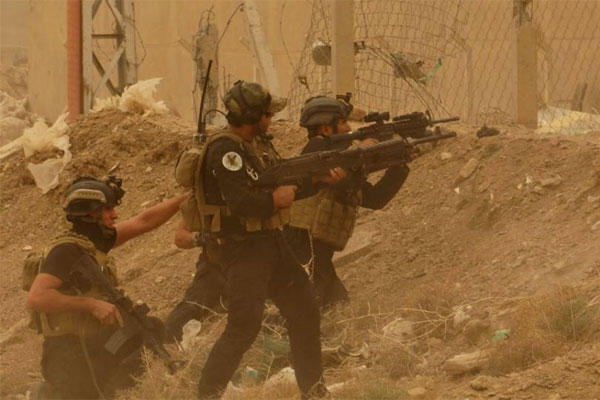After a weekend of mixed signals on the status of Ramadi, the White House acknowledged Monday that that the capital of Anbar province had fallen to ISIS and pledged that the city would be taken back.
"There's no denying that this is indeed a setback but there's also no denying that we will help the Iraqis take back Ramadi," said White House Deputy Secretary Eric Schultz.
"Our aircraft are in the air right now and searching for ISIL targets," Schultz said using another acronym for the Islamic State of Iraq and Syria (ISIS). "They will continue to do so until Ramadi is retaken."
The fall of the city of about 900,000 about 60 miles west of Baghdad, where more than 200 U.S. troops were killed before the U.S. withdrawal in late 2011, was even more of a setback for Iraqi Prime Minister Haider al-Abadi.
Abadi had hoped to drive ISIS out of Ramadi relying on a contingent of Iraqi Security Forces (ISF) made up mostly of Sunni soldiers backed by U.S. airpower. However, Abadi has reversed himself and is now calling on the Shiite militias to help retake Ramadi.
Only last Friday, U.S. Marine Brig. Gen. Thomas Weidley, the chief of staff for Combined Joint Task Force-Operation Inherent Resolve, told Pentagon reporters that the situation in Ramadi remained "contested" but the ISF was holding ground.
"We firmly believe Daesh is on the defensive throughout Iraq," Weidley said in a briefing Friday to Pentagon reporters, using another term for ISIS. "We believe throughout the campaign there will be periods of progress and periods of setback."
Over the weekend, Pentagon officials described the battle in Ramadi as "dynamic and fluid." Iraqi officials said the situation was "dire" but expressed confidence that reinforcements would shore up defenses.
However, reporters based in Iraq on Sunday said that the ISF had fled Ramadi, reportedly leaving their wounded behind and abandoning equipment in a scene similar to last summer when ISIS fighters swept into the northwestern city of Mosul against little resistance.
Critics of the Obama administration were quick to seize on the fall of Ramadi as a sign that the U.S. lacks a coherent strategy to defeat ISIS.
On Sunday, Rep. Michael MCaul, the Homeland Security Committee chairman, said on Fox TV that "in no way, shape or form are we winning" in Iraq.
In a joint statement Monday, Sens. John McCain, R-Ariz., chairman of the Senate Armed Services Committee, and Sen. Lindsey Graham, R-S.C., said that "today the black flags of ISIL fly over Ramadi, the capital of Iraq's Anbar Province. Anbar was once a symbol of Iraqis working together with brave young Americans in uniform to defeat Al-Qaeda."
"Today it appears to be a sad reminder of this Administration's indecisive air campaign in Iraq and Syria and a broader lack of strategy to achieve its stated objective of degrading and destroying ISIL."
-- Richard Sisk can be reached at richard.sisk@military.com





























